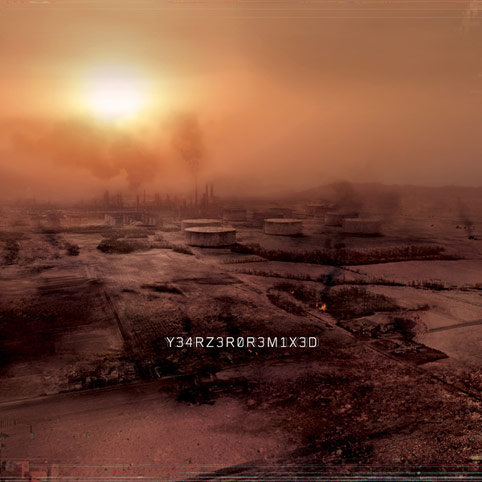Nine Inch Nails 2007 new album --- [Y34RZ3R0R3M1X3D]
Throughout the long history of industrial music, many outstanding representative artists have emerged such as Ministry, Skinny Puppy, Front 242, KMFDM, and so on. However, after entering the 1990s, Nine Inch Nails quickly became the most popular industrial musician, which was somewhat surprising. Some critics talked about this phenomenon with no small amount of sarcasm, saying, "NIN is just pop music under the guise of industrial music; they've never made real industrial music." And Marilyn Manson, a newcomer to industrial music who relied on gimmicks and eccentricity, once again gave people ammunition, becoming evidence for the opposing side when discussing whether industrial music is progressing or regressing.
Regardless, in 1989, Nine Inch Nails' album *Pretty Hate Machine* did manage to restore some dignity to industrial music. Just its record of staying on the charts for several years is proof enough of everything. The music medium of the album is nothing but standard industrial flavor—mechanical, cold, and twisted, all present. In fact, its greatest success lies in its excellent pop sensibility, which not only bridges the gap between ordinary fans and industrial music but also increases the human touch and listenability of the album through dual approaches. The lyrics of the album also try to break away from the usual straightforward gray—even black—tone of industrial music, using more fluent language akin to rhyming poems to subtly express equally extreme ideas.
In 1994, Nine Inch Nails finally released the album *The Downward Spiral*, which was considered a new concept album for industrial music due to its obvious traces of 70s progressive rock. Trent Reznor, the core figure of NIN, skillfully found the connection point between two vastly different rock styles, receiving great praise from both alternative and mainstream fans.
As for the 1999 album *The Fragile*, opinions are clearly divided into two extremes. In terms of overall production quality, Trent Reznor obviously put in a lot of effort. This double CD album lacks too many highlights and seems less aggressive, but it has a deeper and more feminine industrial music atmosphere, focusing on deep psychological feelings, making the album sound somewhat rough. Regarding this change, some say it's a sign of maturity, while others see it as a manifestation of creative exhaustion without direction.
The inherent limitations of industrial music itself are undeniable facts. Given this, we would rather see failed attempts at innovation than stay forever in the past forged on the anvil.
